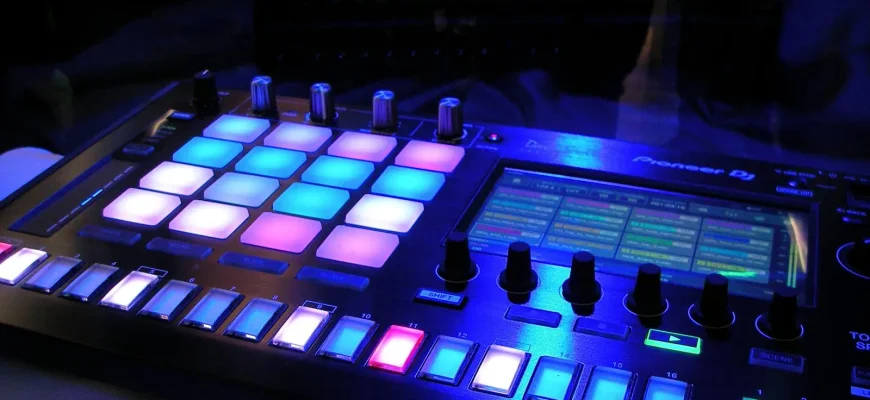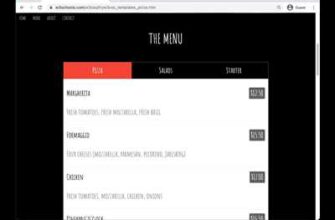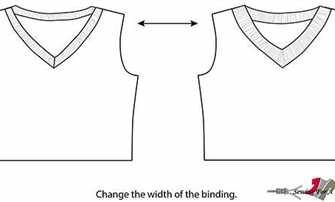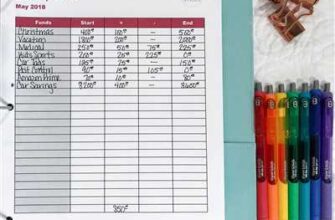
Are you a beginner looking to start creating your own electronic music? Or perhaps you’re already proficient in music production and want to take your skills to the next level? Whatever your level of expertise, this article will provide you with the necessary knowledge and tools to create great electronic music.
When it comes to creating electronic music, one of the most important things to have is a good computer system. You’ll need a decent laptop or desktop that can handle the processing power required by music production software. Some popular software options include Cubase, Ableton Live, and Native Instruments. These programs provide a wide range of tools and instruments that’ll help you create the sound you’re looking for.
Learning how to use these software programs is just the first step. To truly develop your skills as an electronic music producer, you’ll need to dive deeper into the art of sound design. This involves understanding how different sounds and instruments work, and how to balance them effectively in your tracks. There are plenty of tutorials and online resources available that’ll help you discover new sound sources and learn how to manipulate them to create unique sounds.
While software and computers are essential for electronic music production, don’t underestimate the power of external instruments and hardware. Many producers prefer using analog or digital synthesizers, drum machines, and samplers to add a more organic and unique feel to their music. Experimenting with different instruments and finding the right balance between digital and analog tools can help you create a signature sound that sets you apart from other producers.
When it comes to creating electronic music, it’s important to focus on both the technical and creative aspects. Learning the ins and outs of your preferred music production software is necessary to execute your ideas effectively, but it’s equally important to keep an open mind and let your creativity flow. Start by learning the basics and gradually expand your knowledge and skills. Don’t be afraid to try new things and step out of your comfort zone.
As an electronic music producer, it’s important to dedicate time and effort to your craft. Set aside regular hours each day or week to work on your music. Even if you’re not feeling inspired, it’s important to keep practicing and experimenting with different sounds and techniques. Remember, the more you practice, the more you’ll grow as an artist.
In conclusion, creating electronic music is a journey of learning and discovery. Whether you’re a beginner or a professional, there’s always something new to learn and explore in this ever-evolving genre. By using the right tools, such as music production software and external instruments, and by developing your skills and knowledge, you can create great electronic music that reflects your unique style and sound.
- Discover the Music Production Knowledge Skills to Stack to Become a Proficient Producer
- What you need to know as a music producer
- 1. The right tools
- 2. Learning and practicing
- 3. Creating your own sounds
- 4. Balancing and mixing
- 5. Open yourself to collaboration
- 6. Never stop learning
- Conclusion
- How do I start producing electronic music
- Choosing a DAW
- What software do EDM artists use
- Is it necessary for a beginner to have great knowledge to create electronic music
- Creating Your First EDM Track
- Conclusion
- Sources
Discover the Music Production Knowledge Skills to Stack to Become a Proficient Producer
When it comes to creating electronic music, there are a few key skills and areas of knowledge that every aspiring producer should focus on. By developing these skills, you can grow as an artist and create professional-quality tracks.
One of the first things you’ll want to learn is how to use a digital audio workstation (DAW). This is the software that you’ll use to create and manipulate your music. There are many different DAWs to choose from, such as Cubase or Ableton Live, so it’s important to find one that you feel comfortable with and that suits your preferred workflow.
Once you’ve chosen a DAW, it’s time to dive into learning the different tools and features it offers. This can include everything from basic audio editing and mixing to more advanced techniques like sound design and MIDI programming. There are plenty of online tutorials and courses available that can help you learn the ins and outs of your chosen DAW.
While learning your DAW is important, it’s equally important to develop a good balance between technical knowledge and musical skills. You might know how to use all the latest plugins and effects, but if you don’t have a good musical ear or an understanding of music theory, your tracks may still fall flat. Take the time to learn about music theory and practice playing an instrument or two. This will give you a solid foundation to build upon and help you create more interesting and unique compositions.
In addition to technical and musical skills, it’s also important to keep up with the latest trends and developments in the electronic music industry. There are constantly new sounds and production techniques being introduced, and staying informed will ensure that your music stays fresh and relevant. Follow your favorite artists and producers, read blogs and forums, and listen to new music regularly to stay inspired.
Another area to focus on is building a home studio setup. While you can create music using just a laptop and headphones, having a dedicated space with good acoustics and quality audio systems will greatly enhance your production process. Invest in some decent studio monitors or headphones, and consider treating your room with acoustic panels to improve the sound quality.
Finally, don’t be afraid to experiment and try new things. The most unique and interesting music often comes from taking risks and pushing boundaries. Don’t limit yourself to a single genre or style – explore different sounds and techniques to discover your own unique sound.
In conclusion, becoming a proficient electronic music producer takes time and dedication. It requires a balance of technical knowledge, musical skills, and a willingness to constantly learn and grow. By developing these areas of knowledge and skills, you can take your music production to the next level and create tracks that stand out in the industry.
What you need to know as a music producer

As a music producer, there are several important things you need to know in order to create electronic music. Whether you’re a beginner just starting out or a professional looking to grow your skills, these are the key areas you should keep in mind.
1. The right tools
One of the most important things you’ll need as a music producer is a laptop or computer that comes with a good digital audio workstation (DAW) software. There are many options available, such as Ableton Live, Native Instruments, or Cubase, so choose the one that fits your preferred workflow. Make sure to learn the ins and outs of your chosen software through tutorials or learning materials.
2. Learning and practicing
To become a proficient music producer, you’ll need to constantly learn and practice your skills. This includes learning about sound design, mixing techniques, and even music theory. Many artists find it helpful to take online courses or watch tutorial videos to gain knowledge in these areas. It’s also important to experiment and try out new things, as this will help you grow as a producer.
3. Creating your own sounds
While there are many pre-made sounds and samples available, it’s important to learn how to create your own unique sounds. This will help you stand out as an artist and give your tracks a personal touch. Experiment with different synthesizers and learn how to manipulate parameters to achieve the sound you want.
4. Balancing and mixing
One of the key skills of a music producer is the ability to balance and mix different elements in a track. This involves making sure that each instrument or sound is at the right volume, and that there is a good balance between the different parts. It’s important to have a good set of studio monitors or headphones to accurately hear the sound while creating your music.
5. Open yourself to collaboration
While it’s possible to create electronic music on your own, collaborating with other artists can bring a fresh perspective to your work. Working with others can help you discover new techniques and approaches, and can result in unique and exciting music. Keep an open mind and be willing to collaborate with others in the industry.
6. Never stop learning
The world of music production is constantly evolving, with new technologies and techniques emerging all the time. It’s important to stay up-to-date with the latest trends and developments in the industry. Attend workshops, conferences, or seminars to learn about new tools and workflows. Never stop learning and striving to improve your skills.
Conclusion
In conclusion, being a music producer requires knowledge and skills in various areas. By having the right tools, continuously learning, creating unique sounds, balancing and mixing, being open to collaboration, and never stopping your learning journey, you’ll be well on your way to becoming a successful music producer. Remember, creating electronic music is a process that takes time and dedication, but with the right mindset and passion, you can achieve great things in the industry.
How do I start producing electronic music
If you’re interested in electronic music production but don’t know where to start, this guide will give you a good overview of the necessary steps to begin your journey. Here’s what you need to know:
1. Developing your audio skills: Before you dive into producing electronic music, it’s crucial to develop your understanding of sound and audio. Learn the basics of music theory and familiarize yourself with different genres and artists in the electronic music scene. This will lay a solid foundation for your future work.
2. Getting the right equipment: While you can create electronic music using just your laptop, having some external hardware instruments and a good pair of headphones or studio monitors can greatly enhance your production process. Invest in decent equipment that suits your preferred style and budget.
3. Choosing the right software: There are many digital audio workstations (DAWs) available for electronic music production. Cubase, Ableton Live, and Native Instruments are some popular choices among professional producers. Take your time to learn the functionalities of different software and see which one suits your needs.
4. Learning and growing: Electronic music production is a continuous learning process. Dive into tutorials, online courses, and forums to acquire new knowledge and skills. Practice regularly and experiment with different sounds and techniques to discover your unique style.
5. Build your own studio: While a professional studio might be out of reach initially, create a dedicated space where you can concentrate on your music. Invest in some acoustic treatment to improve the sound quality and ensure an optimal environment for your creative process.
6. Connecting with other producers: Networking with other electronic music producers can provide valuable insights and opportunities. Attend music events, join online communities, and collaborate with like-minded artists. Surrounding yourself with talented individuals can push you to new heights.
Conclusion: Starting your journey as an electronic music producer might seem overwhelming at first, but with the right knowledge, skills, and equipment, you can create amazing music. Remember to keep learning, experimenting, and honing your craft. The road to becoming a proficient electronic music producer might be long, but the rewards are worth it.
Choosing a DAW
When it comes to creating electronic music, one of the most important tools you’ll need is a digital audio workstation (DAW). The DAW is the software that you will use to produce and create your tracks.
There are many different DAW options available, each with its own unique features and strengths. Some popular DAWs include Ableton Live, FL Studio, Logic Pro, and Pro Tools. The choice of which DAW to use ultimately comes down to personal preference and your specific needs as a producer.
One of the first things to consider when choosing a DAW is your level of experience and knowledge. If you’re just starting out and have never used a DAW before, it might be a good idea to choose a DAW that is user-friendly and has plenty of tutorials and resources available. This will help you quickly learn the basics of music production and get started on creating your own tracks.
If you’re already an experienced producer and have a solid understanding of music production, you might want to choose a more advanced DAW that offers a wider range of tools and features. This will allow you to have more control and flexibility over your sound and production process.
Another factor to consider when choosing a DAW is the type of music you want to create. Different DAWs have different strengths and may be better suited for certain genres or styles. For example, Ableton Live is often preferred by EDM producers due to its powerful electronic music production tools.
Additionally, you should also take into account the hardware and systems you currently have. Some DAWs work better with certain operating systems or require more powerful computers to handle larger projects. Make sure to check the system requirements of your chosen DAW to ensure it will work well with your setup.
While it’s important to focus on choosing a DAW that is right for you, it’s also worth considering the future. As you develop and grow as an artist and producer, your needs may change. It’s worth choosing a DAW that allows for growth and has the ability to handle more complex projects as your skills and knowledge advance.
In conclusion, choosing a DAW is a crucial decision for electronic music producers. Take the time to research and try out different DAWs to find the one that best suits your needs and preferences. Remember, there is no “right” DAW – it’s all about finding the one that allows you to create the music you love.
What software do EDM artists use
When it comes to making electronic dance music (EDM), the most common software used by artists is a digital audio workstation (DAW). These powerful tools allow producers to create, mix, and arrange sounds to produce the catchy tracks that become the hit songs we know and love.
There are many DAWs available, each with its own unique features and workflow. Some popular choices for EDM producers include Ableton Live, FL Studio, Logic Pro, and Native Instruments’ Maschine. These software packages come with a range of built-in instruments, effects, and samples, making it easy to get started and create professional-sounding tracks.
For artists who prefer using external hardware, there are also DAWs that integrate seamlessly with physical instruments and controllers. This allows musicians to play and record their own sounds using MIDI keyboards, drum pads, and other equipment.
Regardless of which software you choose, it’s important to keep in mind that the tools alone won’t make you a great EDM artist. While a good DAW can provide you with the necessary tools, it’s up to you to develop the skills and knowledge to create unique and captivating music.
If you’re just starting out, it might be tempting to spend hours watching tutorials and reading forums trying to figure out the “right” software to use. However, the truth is that most EDM software is capable of producing high-quality tracks. It’s more important to focus on learning the fundamentals of music production and honing your skills than worrying about which software to use.
Even with the most basic software, you can create great EDM tracks. The key is to start simple and gradually grow your skills and knowledge. As you become more proficient, you can always upgrade your software and add more advanced features.
In conclusion, there are a lot of software options available for EDM artists. It’s up to you to choose the software that best suits your needs and workflow. Whether you’re using a laptop in your bedroom or have a fully equipped studio, there is software out there that’ll help you turn your ideas into music.
Is it necessary for a beginner to have great knowledge to create electronic music
When it comes to creating electronic music, many beginners often wonder if they need to have a great amount of knowledge in order to get started. The truth is, you don’t necessarily need a ton of knowledge to start making electronic music.
Electronic music is a versatile genre that allows for flexibility and experimentation. As a beginner, you can dive right into creating music without having to be proficient in traditional instruments or music theory. With the right tools and dedication, you can create amazing tracks even if you have limited knowledge.
One of the first things you’ll need is a laptop or a digital audio workstation (DAW). There are many DAWs to choose from, such as Cubase, Ableton Live, or Native Instruments’ Komplete. These software programs provide you with the necessary tools to start creating electronic music.
While having a basic understanding of music theory and composition can be helpful, it is not a prerequisite. Most DAWs have built-in features and presets that can assist you in creating a good balance of sound without needing extensive knowledge. Additionally, many producers start with the “stack” method, where they layer pre-made loops or samples together to create a track, which allows them to focus on the creative aspect rather than the technical details.
As you continue to work with your DAW and explore different techniques, you will naturally develop your skills and knowledge in electronic music production. Don’t be discouraged if your first attempts don’t sound like the work of professional artists – even they started somewhere.
It’s also important to remember that learning is a continuous process. You may never know everything there is to know about electronic music production, and that’s okay. It’s a constantly evolving field with new technologies and techniques being discovered all the time. The most important thing is to have fun and keep experimenting with different sounds and styles.
In conclusion, while having a great amount of knowledge can be beneficial in the long run, it is not necessary for a beginner to have extensive knowledge to create electronic music. With the right tools and a passion for creating music, anyone can start their journey into electronic music production. So don’t be afraid to dive in and start making some amazing sounds!
Creating Your First EDM Track
When it comes to creating electronic music, one of the most exciting areas to explore is producing your own EDM track. Whether you’re a beginner or have some knowledge and skills already, this is a great way to develop your abilities and open yourself up to the world of EDM.
Before you start, it’s important to have a good understanding of how electronic music works and what sounds good in the genre. You’ll need a digital audio workstation (DAW) like Cubase or Ableton, which is the software that you’ll use to create and arrange your music.
First, focus on learning and becoming proficient in the basics of your chosen DAW. There are plenty of online tutorials and resources available to help you learn the ins and outs of the software. Spend hours experimenting with different sounds and features, and don’t be afraid to try things out and make mistakes.
As you become more comfortable with your DAW, start experimenting with different instruments and plugins. Native Instruments offers a wide variety of professional-grade instruments and effects that are commonly used in EDM production. Discover what sounds and instruments work best for you and incorporate them into your tracks.
Balance is key when creating EDM. You want to find a good balance between your different elements – drums, bass, synths, and vocals if applicable. Each part should have its own space in the mix and not be fighting with each other for attention. Use panning, EQ, and other effects to create separation and give each element its own place in the stereo field.
When it comes to creating a decent EDM track, it’s important to keep in mind that less is often more. Don’t try to cram every idea and sound into one track. Focus on the key elements and let them shine. This will help your track sound cleaner and more professional.
Don’t be afraid to learn from other artists and producers. Listen to the music you love and try to dissect it. Pay attention to the arrangement, sound design, and the overall vibe of the track. You can even get inspiration from genres outside of EDM and find ways to incorporate those elements into your own music.
Lastly, don’t forget to have fun and enjoy the process. Creating music is a creative outlet, and it’s important to let your own style and personality shine through. Experiment, try new things, and allow yourself to make mistakes. Even the most seasoned producers are constantly learning and evolving.
In conclusion, creating your first EDM track is an exciting and rewarding journey. With the right tools, knowledge, and practice, you can create music that’ll have people dancing and enjoying themselves. So open up your DAW, start experimenting, and let your creativity take you on the road to becoming a successful EDM producer.
Remember: The most important thing is to keep learning and never stop improving. With dedication and passion, you can create amazing electronic music that stands out from the rest.
Conclusion
In conclusion, if you’re a beginner in electronic music production, it’s important to focus on learning the necessary skills and knowledge. While there are many software options available, it is recommended to start with a simple and user-friendly DAW such as Cubase or Ableton Live. These software options have a good balance of features and are widely preferred by professional producers.
When starting out, it’s important to keep in mind that it takes time and practice to develop your skills as a producer. Don’t get discouraged if your early tracks don’t sound as good as you would like them to be. It’s a learning process, and with each track you create, you will discover new techniques and become more proficient.
It’s also worth mentioning that while software and hardware are important tools in electronic music production, they are just that – tools. The real creativity and musicality comes from you as the artist. So, don’t get too caught up in choosing the perfect software or buying expensive equipment right away. Focus on making music and learning the fundamentals first.
There are many resources available online such as tutorials, forums, and communities where you can learn and grow as a producer. Take advantage of these resources to expand your knowledge and connect with other producers. As you continue to work on your music, be open to experimenting and trying new things. This is how you will develop your own unique sound.
In summary, electronic music production is a journey that requires dedication, patience, and a willingness to learn. Starting with the right software, focusing on learning the necessary skills, and keeping an open mind will help you grow as a producer. With time and practice, you can become proficient in creating your own unique sounds and tracks.
Sources
When it comes to creating EDM, there are several sources that can help you develop your skills as a producer.
One of the most preferred sources for learning electronic music production is online tutorials. There are various websites and video platforms that offer tutorials on different aspects of creating electronic music. These tutorials can help you learn how to use software, such as Cubase or Ableton Live, and discover various tools and techniques for making sounds and instruments.
If you’re a beginner, it’s important to focus on learning the basics. You’ll need to have a good balance between understanding the digital audio workstation (DAW) and learning how to create sounds. Some areas you might need to learn about include MIDI, audio recording, and using external instruments.
Another source for learning electronic music production is books and courses. Many experienced producers and artists have written books or created courses that cover different aspects of music production. These resources can provide you with in-depth knowledge and insights into the industry.
When it comes to software, there are several DAWs to choose from. Some popular options include Ableton Live, FL Studio, and Logic Pro. Each DAW has its own strengths and workflow, so it’s important to find one that you’re comfortable with and can work efficiently in.
Additionally, it’s crucial to stay up-to-date with the latest trends and techniques in electronic music production. Following professional producers and artists on social media platforms or subscribing to blogs and newsletters can help you stay informed and learn from their experiences.
In conclusion, there are many sources available for learning how to create electronic music. Whether you prefer online tutorials, books and courses, or learning from other producers, it’s important to dedicate time to develop your skills and knowledge. With the right tools and resources, you can become proficient in electronic music production and start creating your own professional tracks.










